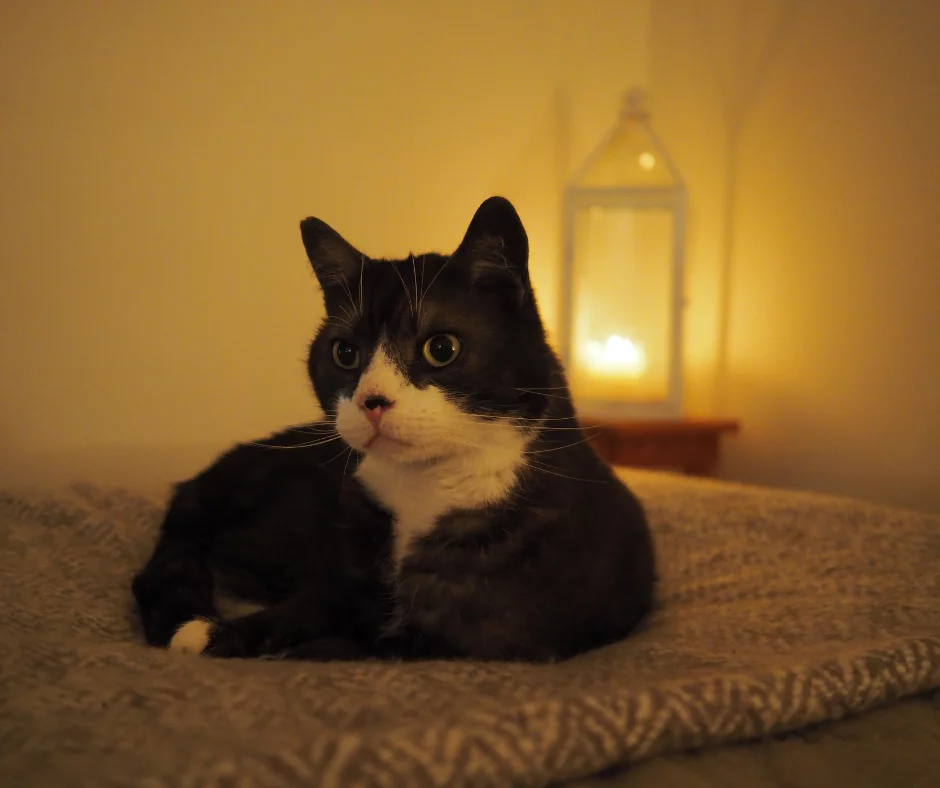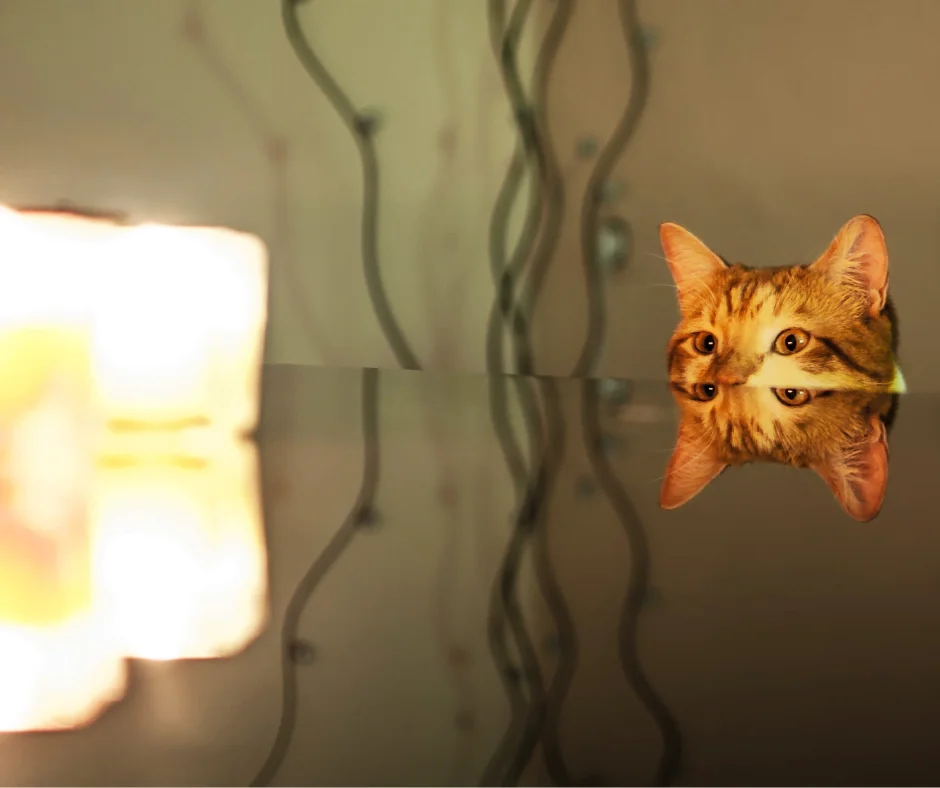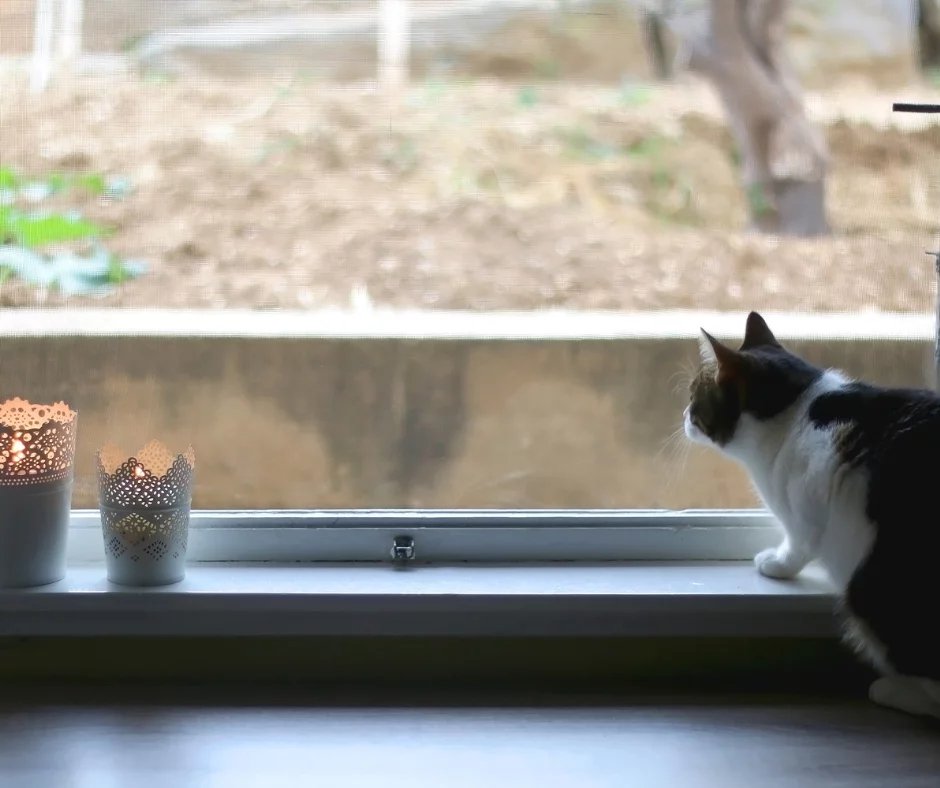Cats are curious creatures and may be drawn to the smell of incense or candles. But are these scents safe for cats?
It is not recommended to burn scented solid candles and incense around your cats. Cats have a much higher sense of smell than humans, and strong smells can overwhelm them. In addition, some candles and incense contain essential oils that can be toxic to cats if inhaled or ingested.
This article will explore the issues with burning these products around your furry friends. We will also discuss what you should do if you choose to use these products around your house.

What are incense and candles made of?
Incense
Incense is made of dried plant materials, which are then rolled into a powder and formed into sticks. The sticks are then burned, releasing the scent into the air.
Incense sticks can come in many different scents, including:
- Cinnamon
- Lavender
- Pine
- Rosemary
- Sage
It is important to note that animals, cats included, can be susceptible to certain scents. Some scents that your furry friends are exposed to can even be toxic, so it is essential to make sure you know before you bring a new scent home to use around your house. We will touch upon this later in the article.

Scented candles
Candles are typically made of paraffin wax, which is derived from petroleum. They may also contain other ingredients like colorants, fragrances, and wicks. Candles can also be made from beeswax, soy wax, or other plant-based waxes.
When burned, candles release chemicals into the air, including VOCs (volatile organic compounds). Some of these VOCs can be harmful to cats, especially if they are exposed to high levels over time.
If you choose to burn candles in your home, ensure they are unscented and made of beeswax or soy wax. These types of candles are less likely to release VOCs into the air.
What waxes burn clean?
If you are looking to purchase candles for your home, be sure to look for soy wax, beeswax, or palm wax candles. These types of waxes burn clean and will not produce harmful toxins, chemicals, or soot when burned correctly. You can read our article that explores those elements of a candle that can cause toxins to be released into your home and what you can do to avoid them.
How do cats react to scents?
As we mentioned earlier, cats have a much higher sense of smell than humans. This means that they are more susceptible to the effects of strong smells.
When exposed to a strong scent, cats may experience a range of reactions, including:
- Watery eyes
- Sneezing
- Coughing
- Wheezing
- Difficulty breathing
- Nausea
- Vomiting
- Diarrhea
- Lethargy
If your cat experiences any of these symptoms after exposure to a strong scent, it is essential to seek veterinary care immediately.
Read Your Cats Behavior
You know your cat better than anyone, so you are in the best position to determine how they will react to a new scent. If you choose to use scents around your house, do so cautiously.
When introducing a new scent into your home, do so gradually. Start by burning the product for a short period in an area your cat does not typically spend time in. This will give them time to get used to the scent.
Pay close attention to your cat’s behavior after introducing a new scent. Remove the product from your home immediately if they seem uncomfortable or experiences any of the symptoms we mentioned earlier.
Are incense and candles safe for cats?
As mentioned earlier, burning scented candles and incense around your cats is not recommended. Cats have a much higher sense of smell than humans, and strong smells can overwhelm them. In addition, some candles and incense contain essential oils that can be toxic to cats if inhaled or ingested.
If you choose to burn candles or incense in your home, you should aim to only burn these products in different rooms for your furry friends. You will want to ensure that your rooms are well-ventilated and that you choose scents that are non-toxic and that are not overpowering.
What are the dangers of scented candles and incense for cats?
Burns and Fire Hazards
The first danger to consider is the risk of burns and fire hazards. They could knock it over and start a fire if you burn a scented candle or incense near your cat. Candles should always be placed on a stable surface, out of reach of pets and children.
Inhaling Smoke and Scented Chemicals
Another danger to consider is the risk of your cat inhaling smoke or scented chemicals. If you burn a scented candle or incense in a room where your cat is present, they could start wheezing, coughing, or have difficulty breathing. In some cases, cats can even experience an allergic reaction to certain scents.

Eating Scented Candles or Incense
Another danger to consider is the risk of your cat eating scented candles or incense. If your cat ingests a scented candle or incense, they could experience vomiting, diarrhea, and other gastrointestinal issues. In some cases, ingesting these products can even be fatal.
How can you keep your cat safe around candles and incense?
The best way to keep your cat safe around candles and incense is to avoid using them altogether. If you do choose to use these products, there are a few safety measures you can take to minimize the risks:
- Never leave burning candles or incense unattended.
- Keep burning candles and incense out of reach of pets and children.
- Be sure to choose unscented candles made of beeswax or soy wax.
- Avoid using scented candles and incense in rooms where your cat spends time.
- Ensure that rooms are well-ventilated when burning candles or incense.
- Choose non-toxic, non-overpowering scents.
- Stop using candles or incense immediately if your cat shows any signs of distress.
If you have any concerns about the safety of scented candles and incense around your cat, be sure to speak to your veterinarian. They will be able to provide you with more information and advice.

What scents are toxic to cats?
There are a few scents that are particularly toxic to cats, including:
- Cinnamon
- Citrus
- Peppermint
- Pennyroyal
- Pine
- Tea Tree Oil
- Ylang Ylang
- Wintergreen
These scents can be toxic if your cat inhales, ingests, or comes in contact with them. If you suspect your cat has been exposed to these scents, it is essential to seek veterinary care immediately.
Are diffusers and Essential Oils safe for cats?
The use of diffusers and essential oils around cats is a controversial topic. Some people claim that diffusing essential oils is safe if you choose non-toxic, non-overpowering scents and keep the diffuser out of reach of your cat. However, there is no scientific evidence to support these claims.
Many experts believe that diffusing essential oils is not safe for cats. If your cat inhales the fumes from diffused essential oils, they could experience respiratory distress, coughing, and difficulty breathing. In some cases, this could even be fatal. If you choose to use a diffuser in your home, you should do so in a room where your cat is not present. You should also avoid using diffusers with strong scents, such as citrus or peppermint.

If you have any concerns about the safety of diffusers and essential oils around your cat, be sure to speak to your veterinarian. They will be able to provide you with more information and advice. Take note of the scents and essential oils not to use listed above if you choose to use these products in your home.
Are there any alternative scented candles and incense safe for cats?
Pet-friendly Odor Products
If you are looking for alternatives to scented candles and incense that are safe for cats, there are a few pet-friendly odor products on the market. These products can help to eliminate odors in your home without putting your cat at risk.
Air Purifiers
One option you may want to consider is an air purifier. Air purifiers can help to remove odors from the air, making them a safe and effective option for homes with pets.
Odor-Eliminating Sprays
Another option you may want to consider is an odor-eliminating spray. These sprays can be used on fabrics and other surfaces to help eliminate odors.
Final Thoughts
So, are scented candles and incense safe for cats? The answer is no. Candles and incense can be dangerous for cats if they are burned near them or if they ingest them. If you choose to burn these products in your home, make sure to do so in a well-ventilated room and out of reach of your furry friends.


